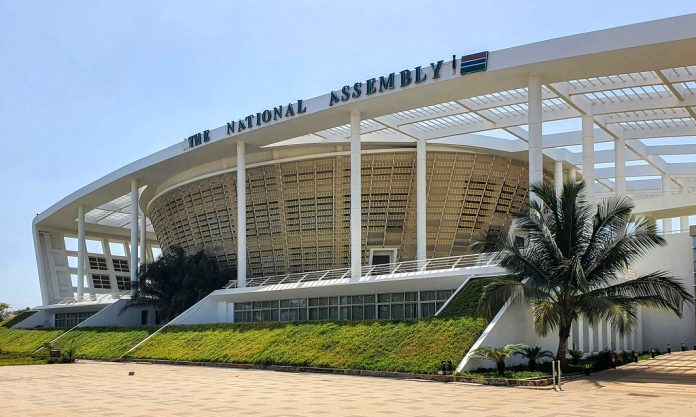By Kebba AF Touray
Lawmakers in The Gambia’s National Assembly erupted in anger Thursday as they debated the Finance and Public Accounts Committee (FPAC) report on the government’s 2020 audited accounts, with several members demanding immediate investigations and prosecutions of individuals implicated in what they described as “rampant” and “shocking” acts of corruption.
The report, which revealed serious financial malpractices across both central government and local councils, sent shockwaves through the Assembly. Speaker after speaker condemned the apparent culture of impunity and accused senior public officials of betraying the trust of the Gambian people.
“The citizens have given us power,” declared Hon. Lamin Ceesay of Kiang West, “but this Parliament looks like a toothless bulldog when reports like this are tabled. We approve budgets, and the Finance Minister turns around and virements funds as he pleases, without legal approval.” Ceesay referenced the FPAC’s finding that D246 million had been shifted without any documented ministerial consent — a clear violation of the Public Finance Act.
Hon. Lamin J. Sanneh of Brikama South was equally alarmed, describing the audit as a revelation of “serious financial malpractice and misappropriation.” He pointed to discrepancies in statements amounting to D2 billion, insisting that the committee should have recommended punishments for those responsible. “These aren’t accounting errors,” he said. “They’re cover-ups.”
From Banjul Central, Hon. Abdoulie Njai called the findings a blatant breach of public finance laws. “We are losing billions,” he said, pressing for whistleblower protections to encourage internal reporting of financial misconduct. “Our recommendations should carry legal weight and trigger criminal investigations.”
Upper Fulladou West representative Hon. Bakary Kora described corruption as “a cankerworm” in public institutions. “Going through this report, I’m disappointed and dumbfounded,” he said. Over D7 million worth of payment vouchers could not be located during the audit. That’s unacceptable.”
Hon. Sulayman Saho of Central Badibu delivered perhaps the harshest critique. “This report shows the highest level of corruption in both the central government and councils. It is a betrayal of trust, and no one should defend it,” he declared. “The virement of D75 million without approval — that’s not administrative error. That’s theft.”
He challenged the Assembly to act decisively, proposing that FPAC be given time to craft binding resolutions. “The Inspector General of Police must investigate. This should not end in speeches.”
Hon. Birom Sowe of Niamina West emphasised that the Ministry of Finance should lead by example. “I don’t oppose virement in principle, but the way it was done here is disheartening. If the central government is failing, how do we expect councils to follow the law?”
Hon. Ablie Baldeh of Jarra West offered a sobering conclusion: “This proves that there is money in the country — the problem is that people are treating public resources like personal property. Something must be done, or we lose all credibility.”
Majority Leader Hon. Billay G. Tunkara underscored the gravity of the situation, citing payments of D2.1 million to individual staff and unapproved allowances amounting to thousands. “You look at our hospitals, and you can see the corruption. Payments were made to unregistered companies in violation of GPPA rules. This is truly disturbing,” he said.
The FPAC report detailed numerous instances of financial irregularities, including: Unauthorised virements totalling over D356 million, with D246 million lacking ministerial approval; D62.5 million in cancelled cheques that were still cashed, with no physical evidence of cancellation; A discrepancy of over D253 billion in foreign currency account translation; and Compensation payments totalling D18 million to Faraba Banta victims without verifiable recipient information.
The committee recommended that the Ministry of Finance refrain from virements not included in the approved manpower budget and that all such transactions must follow Section 29 of the Public Finance Act. It further called for all irregularities to be investigated and the findings submitted within 30 days.
But for many lawmakers, recommendations alone are not enough.
“This is no longer a matter for Parliament alone,” said Saho. “It is a matter for the police, the courts, and the Gambian people. The corrupt must be named and prosecuted.”
The Assembly’s debate marks a potential turning point in the country’s long struggle with public sector corruption — if the words are followed by action.



















